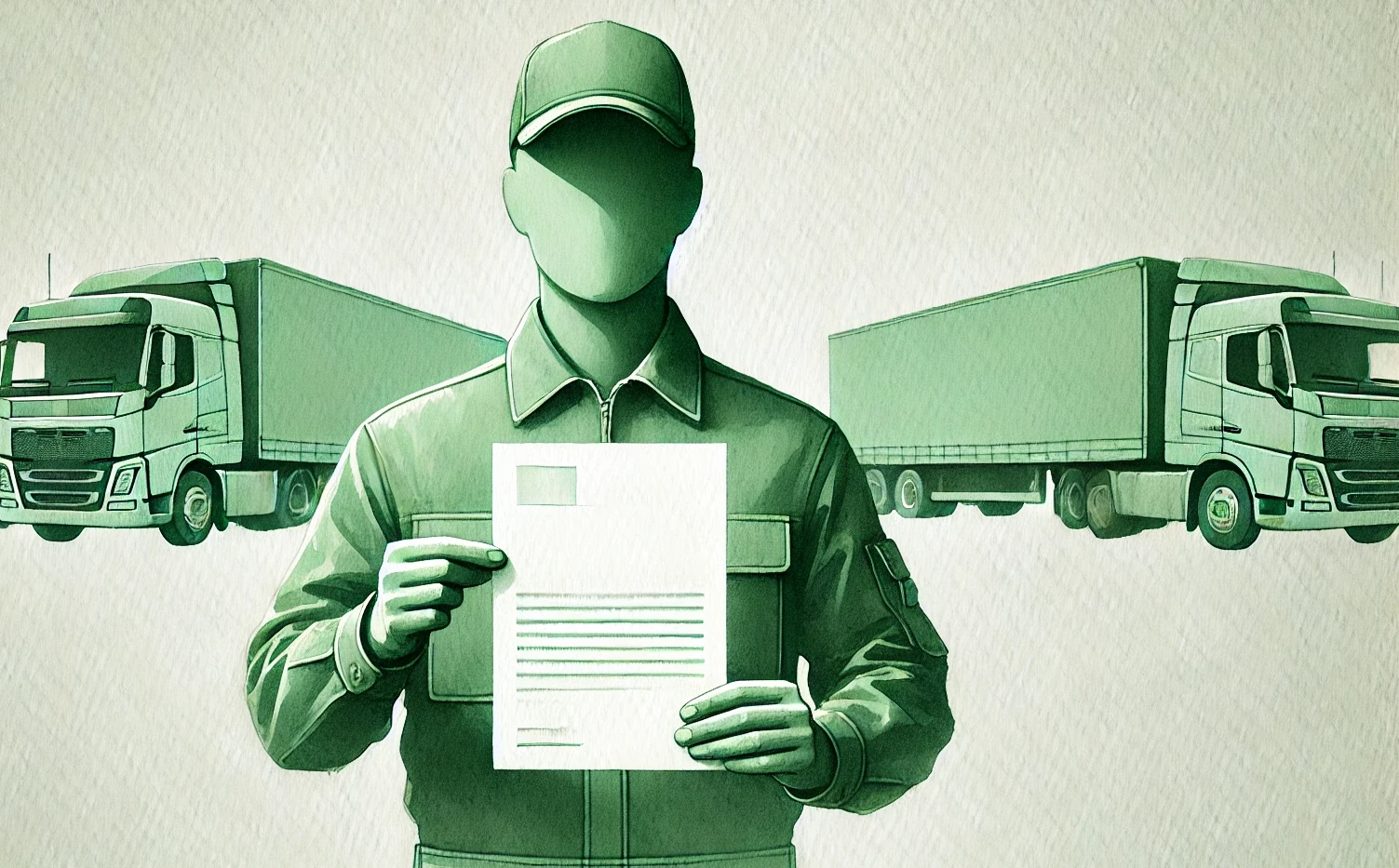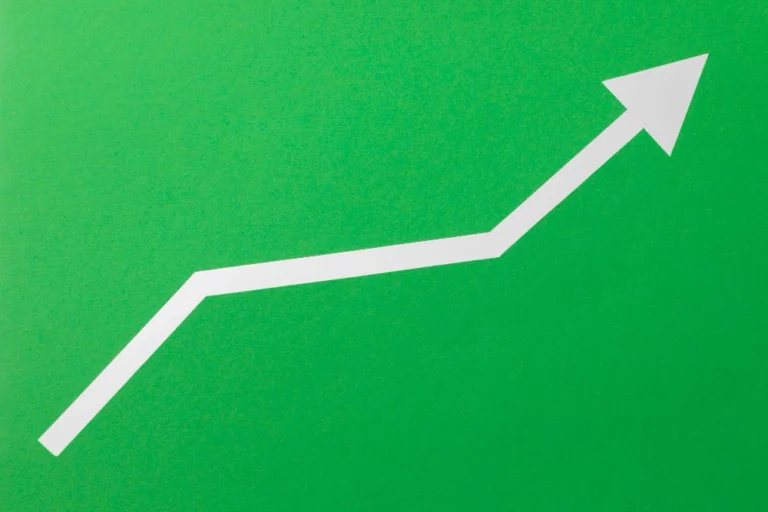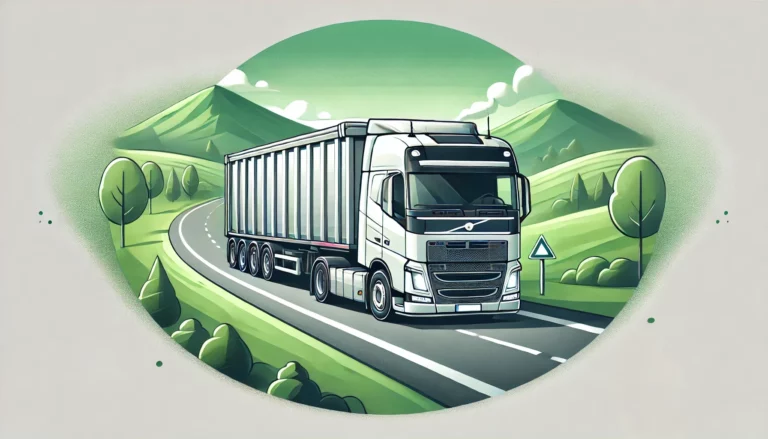Waste permit - one document, many benefits

The waste permit is a document that opens many doors for the haulier - to new opportunities, higher wages, better contracts. It obliges him to comply with strict regulations, which vary from country to country or type of waste. It also signals to contractors that the company is serious about protecting the environment and taking an active part in the circular economy. What else is worth paying attention to?
Need help obtaining a waste transport permit?
e.nadolna@ekologistyka24.pl , +48 881 045 376
j.blazewicz@ekologistyka24.pl , +48 500 867 153
Waste permit - many options, problems but also opportunities
You have probably encountered on our website the subject of waste transport permits, their advantages or the obligations that result from having the relevant authorisations. We regularly return to this issue, as it is extremely important. This is because it offers many opportunities for both new companies entering the waste market and experienced companies looking for alternative markets. The waste permit sets a company apart from its peers, underlining its environmentally friendly approach to transport and its commitment to a closed loop economy.
On the other hand, having or not having this document carries certain consequences. Problems arise in particular when the haulier is not familiar with the regulations in force in a given country. This risks not only fines, but also loss of reputation and customer confidence.
Waste permit - one document for all problems?
We receive many enquiries from domestic and foreign companies about whether there is a single permit for waste transports across Europe. The answer is clear - no such document exists. Each EU country has its own regulations, which set out the rules on waste transport for both domestic and foreign companies.
This reality can sometimes be overwhelming for hauliers. The number of laws and regulations that need to be known and applied is enormous. In many countries, separate permits have to be obtained and documentation has to be prepared, which often has to be translated into the official language. These regulations change frequently in response to market changes. This is why many companies choose to cooperation with Ecologistics24which supports them in interpreting complex procedures and legal requirements.
Why have a waste permit?
Such authorisation, as we mentioned in the introduction, enables the company to grow and provides an opportunity to expand its horizons. What other benefits does it bring?
- entitles you to operate legally,
- opens the way to cooperation with public institutions,
- raises the credibility of the company against its competitors,
- enables the execution of cross-border orders,
- reduces the risk of administrative penalties,
- protects reputation in the event of inspections,
- facilitates the application for grants and participation in EU projects,
- allows the scope of activities to be expanded,
- ensures compliance with current legislation,
- is an asset in attracting investors.
Each of these elements translates into a competitive advantage and long-term business security. Moreover, having a licence demonstrates the professionalism and responsibility of the entrepreneur.
Regulations and consequences of breaking them - examples from Europe
As we mentioned, each country in the Community has its own separate legislation on waste transport and can impose its own penalties depending on the severity of the act. In Belgium, for example, waste law differs between regions. In Flanders, the Flemish Executive Order (VLAREM II) applies, in Brussels, the Waste Act (Ordonnantie betreffende afvalstoffenbeheer) and in Wallonia, the Waste Decree of 27 June 1996 (Décret du 27 juin 1996). Each region also has its own registers and sanctions.
In Romania, on the basis of Law 211/2011, the haulier can be fined between 20,000 and 100,000 lei (PLN 43,000 - 86,000) for any breach of waste transport regulations, with the additional threat of vehicle seizure and revocation of licences.
Most national regulations are based on Regulation (EU) 2024/1157, which replaced Regulation 1013/2006. The new regulations tighten controls, require digital records of shipments and precise classification of waste. Failure to meet these requirements not only results in fines, but can also block further transport operations.
says ewelina nadolna, expert on waste transport permits and environmental legislation
I do not know whether it is due to inattention, haste or deliberate action, but recently we have been noticing more and more cases of violations of regulations when it comes to waste transport in Poland. We are most often approached by companies from the Baltic States, such as Lithuania and Latvia, which are in a difficult situation and urgently need to notify SENT or register with BDO. Fortunately, thanks to our many years of experience, we are able to straighten things out quite quickly.
WasteTransport.co.uk - a database that combines the needs of producers and hauliers
Many of the hauliers we work with have chosen to be listed in the database on the WasteTransport.co.uk. And no wonder. For waste producers, it is a place where they can quickly and safely find a reliable haulier with the right qualifications. For hauliers, in turn, it is an opportunity to win new orders without intermediaries.
The platform publishes company profiles, including their contact details, information on permits and types of waste handled. Registered users can receive offers and establish cooperation without unnecessary formalities. It is the ideal link between the needs of the market and the capabilities of hauliers.
It is also worth mentioning that, due to the good positioning of the website on which the aforementioned base is located, the haulier can count on better visibility on the web. This, in turn, will translate into more transport requests and will speed up the search for profitable orders.
Summary
Although the waste management permit does not solve all problems, it certainly opens many doors. However, in order to take full advantage of its benefits, it is important to be aware of the obligations incumbent on the company. Only then can you avoid financial penalties and damage to your image. A good knowledge of the regulations puts a company in a better position vis-à-vis its competitors and allows it to smoothly navigate the meanders of environmental law - both at home and abroad.






